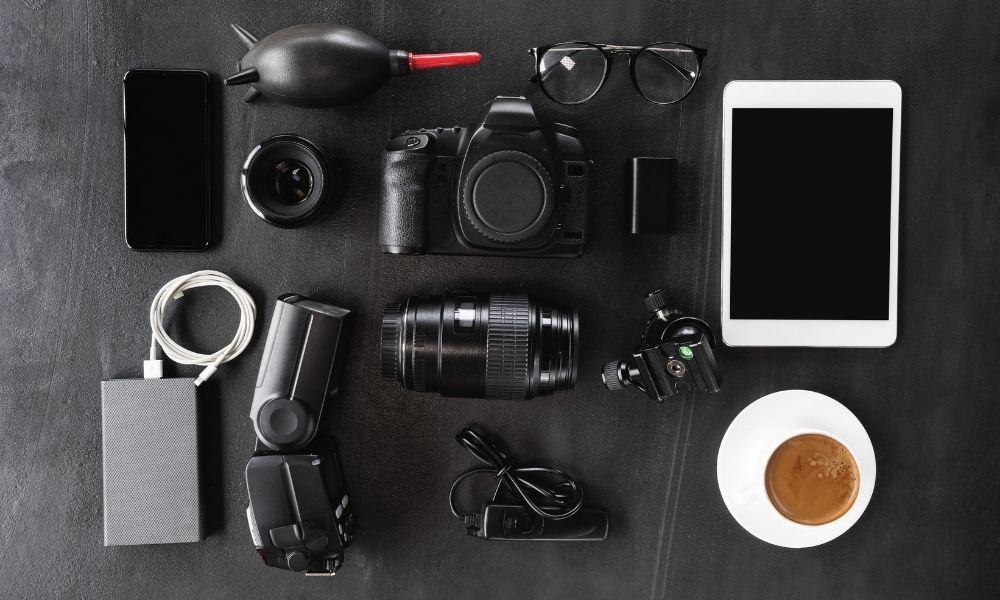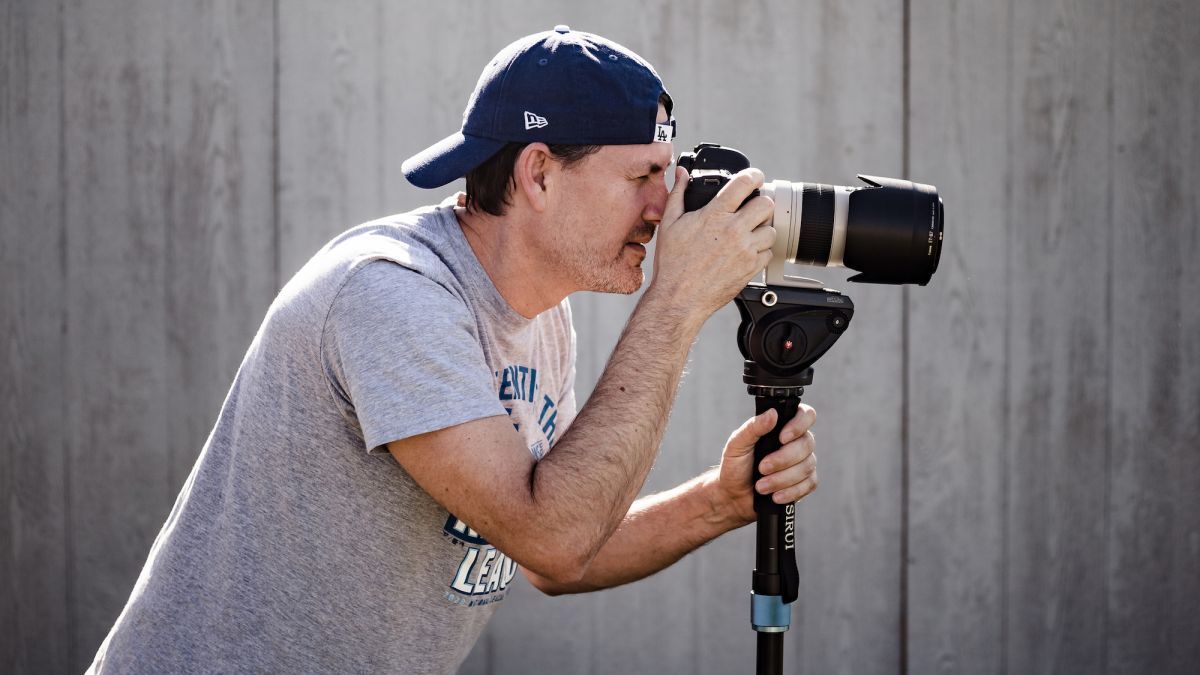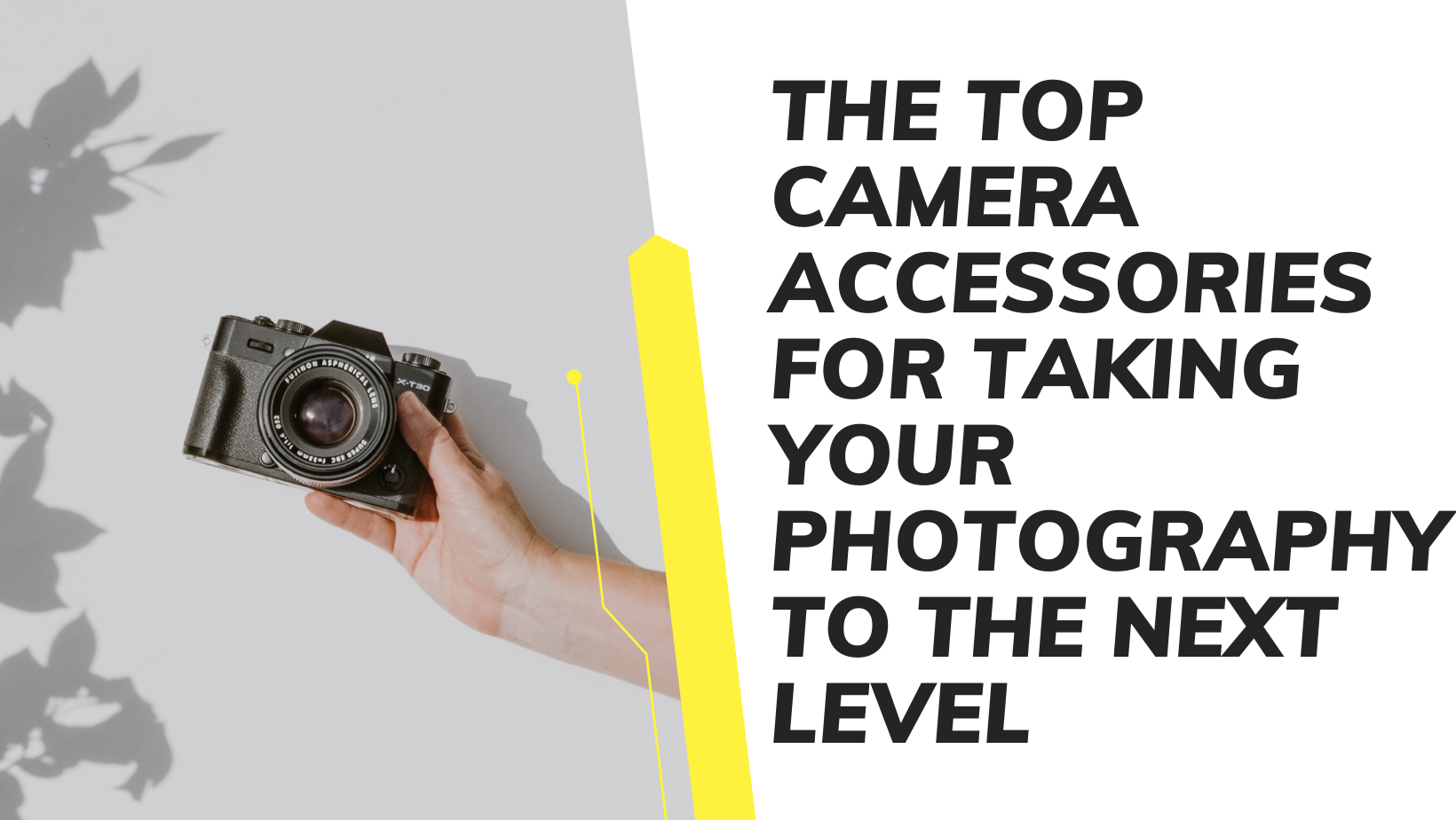Taking great
photographs requires more than just a good camera. The right
camera accessories can help take your
photography to the next level, allowing you to
capture stunning images that truly stand out. Whether you're a
professional photographer or an amateur looking to improve your skills, investing in the right camera accessories can make all the difference. a
high-quality camera makes your photos
stunning.
Some of the top camera accessories for taking your photography to the next level include:
A tripod is a three-legged stand that helps to keep your
camera steady and stable while taking
photos. It is an essential accessory for
photography, especially in situations where you need a long exposure time, low light conditions, or when you need to take multiple
shots of the same scene for a panorama or
HDR image.There are different types of tripods, such as lightweight travel tripods, heavy-duty professional tripods, and flexible tripods that can be wrapped around objects for
unique angles. The tripod's legs can be adjusted to different heights and angles, and the head of the tripod can rotate to allow for vertical and horizontal shots.When selecting a tripod, consider the weight capacity, the material of the legs (aluminum or carbon fiber), the height and stability, and the type of head (ball head, pan-tilt head, or gimbal head). A good tripod will last for years and help you take sharp and steady
photos.
An external flash is a portable, detachable unit that can be attached to the hot shoe of your camera or used off-camera with a wireless trigger. It provides additional light to your scene, helping to fill in shadows, add depth, and create more flattering lighting for your subject.External flashes come in different sizes and power levels, with some models offering more advanced features like TTL (through-the-lens) metering and high-speed sync. They can also be modified with diffusers, reflectors, and gels to customize the light and
create specific effects.Using an external flash can help to improve your
photography in many situations, including low-light conditions, indoor events, portraits, and
creative lighting setups. By controlling the direction and intensity of the light, you can create a more professional look and
enhance the overall quality of your
images.
Filters are accessories that can be attached to the front of your camera lens to modify the light that enters your camera. There are different types of filters available, each with its own
unique effect:
- UV filters: These filters are transparent and are used to protect the front of the lens from scratches and dust. They can also reduce the amount of UV light that enters the lens, which can help to improve the color saturation and sharpness of your photos.
- Polarizing filters: These filters help to reduce glare and reflections, especially when shooting landscapes or water scenes. They can also help to enhance the contrast and color saturation of your images.
- Neutral density (ND) filters: These filters reduce the amount of light that enters the lens, allowing you to use slower shutter speeds or wider apertures in bright conditions. They are useful for creating motion blur effects, such as smooth waterfalls or silky clouds.
- Graduated filters: These filters have a gradient effect that can help to balance the exposure of your scene, especially when there is a large difference in brightness between the foreground and background. They can be used to darken the sky or brighten up the foreground.
- Creative filters: There are many types of creative filters available, such as color filters, star filters, soft-focus filters, and fisheye filters. These filters can add unique and artistic effects to your images.
Using filters can help to enhance the quality of your
photos and allow you to create more creative and interesting shots. It's important to choose the right type of filter for your specific shooting situation and to invest in high-quality filters to avoid degrading the
image quality.
A remote shutter release is a small accessory that allows you to trigger your camera's shutter without physically touching the camera. This can be helpful in situations where even the slightest movement can cause a camera shake and result in blurry
images, especially when shooting at slow shutter speeds or with a long lens.There are different types of remote shutter releases available, including wired and wireless options. Wired remote releases connect to your camera's shutter port, while wireless remote releases communicate with your camera via infrared or radio signals.Using a remote shutter release can also be helpful when shooting in situations where you want to be in the photo yourself, such as group shots or self-portraits. With a remote release, you can set up the camera and trigger the shutter from a distance, allowing you to be in the
photo without having to rush back and forth.When selecting a remote shutter release, make sure to choose one that is compatible with your camera model and offers the features you need, such as a timer, intervalometer, or bulb mode support.Extra batteries are additional power sources that can be used to replace or supplement the battery that comes with an electronic device. They are commonly used in devices such as cameras, remote controls, and toys that require a constant power source.Extra batteries come in various sizes and types, depending on the device they are intended for. For example, AA, AAA, and 9V batteries are common sizes used in many household devices. Lithium-ion batteries are commonly used in smartphones and other portable electronic devices.Having extra batteries on hand can be useful in situations where the device is heavily used or when there is no access to an electrical outlet to recharge the battery. It is important to properly dispose of batteries when they are no longer needed or have reached the end of their useful life to prevent environmental harm. Many communities have recycling programs that accept batteries for proper disposal.
A memory card is a small electronic storage device that is used to store digital data such as photos,
videos, and documents. Memory cards are commonly used in portable electronic devices such as cameras, smartphones, tablets, and gaming devices.Memory cards come in various types and sizes, including Secure Digital (SD), microSD, CompactFlash (CF), Memory Stick (MS), and more. Each type of memory card has a different storage capacity and speed and is designed to be compatible with specific devices.Memory cards are preferred by many people for their portability and convenience. They are small, lightweight, and can easily be transferred from one device to another. Additionally, they can be easily replaced or upgraded to increase storage capacity.It is important to properly handle and store memory cards to avoid data loss or corruption. Avoid exposing them to extreme temperatures, moisture, or magnetic fields, as these can cause damage to the card and its data. It is also recommended to regularly back up the data stored on memory cards to prevent loss in case the card becomes damaged or lost.
A camera bag is a protective case designed to hold and transport cameras and their accessories. Camera bags are available in a variety of shapes, sizes, and designs, ranging from small, compact cases designed for point-and-shoot cameras to larger backpack-style bags that can accommodate multiple cameras and lenses.Camera bags are designed to provide protection for camera equipment, preventing damage from impacts, scratches, and moisture. They typically have padded interiors to cushion and protect the camera and lenses and may have adjustable dividers to create custom compartments for different equipment.Camera bags may also have additional features such as external pockets for accessories like memory cards, batteries, and filters, as well as straps or loops for attaching tripods and other gear. Some camera bags are even designed to be weather-resistant, offering additional protection from rain and moisture.When choosing a camera bag, it is important to consider the type of photography you will be doing and the amount of equipment you will need to carry. It is also important to consider the level of comfort you require when carrying the bag, especially if you plan to use it for extended periods of time. Look for a bag that is well-padded and has comfortable straps or handles, and distributes weight evenly across your body.
A cleaning kit is a set of tools and products designed to clean and maintain electronic devices such as cameras, lenses, smartphones, tablets, and laptops. Cleaning kits typically include items such as cleaning solutions, microfiber cloths, lens pens, blower brushes, and sensor swabs.Cleaning kits are important because electronic devices are prone to accumulating dirt, dust, and smudges, which can degrade the performance of the device over time. Cleaning kits are designed to remove these contaminants without damaging the delicate surfaces of the device.The cleaning solution in a cleaning kit is typically a specially formulated liquid that is safe for use on electronic devices. Microfiber cloths are soft, lint-free fabrics that are used to wipe surfaces without leaving scratches or streaks. Lens pens are small, handheld tools that have a brush on one end for removing dust and debris, and a cleaning tip on the other end for removing fingerprints and smudges.Blower brushes are used to blow away loose dust and debris, while sensor swabs are used to clean camera sensors, which can be particularly sensitive to dust and dirt. When using a cleaning kit, it is important to follow the manufacturer's instructions and to use the tools and products provided in the kit.Using the wrong type of cleaning solution or cloth can damage the device, so it is important to choose a cleaning kit that is specifically designed for the type of device you are cleaning. Additionally, it is important to clean your device regularly to keep it in good working condition.
Portable lighting is an important tool for
photographers who need to create a specific lighting setup in different locations or situations. Portable lighting options include:
- Portable LED lights: These compact lights are battery-operated and can be easily mounted on a stand or tripod. They are versatile and can be used to provide both ambient and directional lighting.
- Speedlights: Also known as flashguns, speedlights are small, portable flashes that can be mounted on the camera or used off-camera with a wireless trigger. They are ideal for adding fill light or creating more dramatic lighting effects.
- Continuous lighting: These lights provide a constant source of light and are ideal for video or live streaming. They come in a variety of sizes and types, including ring lights, panel lights, and softboxes.
- Light modifiers: Light modifiers such as softboxes, umbrellas, and diffusers can be used with portable lighting to create a softer, more natural-looking light. They can be easily attached to portable LED lights or speedlights.
When choosing portable lighting, consider factors such as the power source, size and weight, and compatibility with your camera and other accessories. A portable lighting kit with a combination of different lights and modifiers can help you create a variety of lighting setups in different locations, making it a valuable addition to any photographer's toolkit.
FAQ:
What are some must-have camera accessories for photography?Some must-have camera accessories for photography are a tripod, extra batteries and memory cards, a camera bag, a remote shutter release, and a polarizing filter.
Why is a tripod important for photography?A tripod is important for photography because it allows you to stabilize your camera and take sharp photos, especially in low light situations or when using longer shutter speeds.
What should I look for in a camera bag?When looking for a camera bag, you should consider its size and capacity, the amount of padding it has to protect your gear, its level of comfort and durability, and its accessibility and organization features.
What are remote shutter releases and why are they useful?Remote shutter releases are devices that allow you to trigger your camera's shutter without physically touching the camera. They are useful for reducing camera shake and blur, especially when using long exposures or for self-portraits.
What does a polarizing filter do and when should I use one?A polarizing filter reduces glare and reflections on non-metallic surfaces such as water and glass, and enhances color saturation and contrast. They are useful for landscape and outdoor photography, especially in bright sunlight.
Are there any other camera accessories that are helpful for photography?Other helpful camera accessories for photography include a flash, lens filters, a lens hood, a cleaning kit, and a camera strap. The specific accessories you need will depend on your style of photography and the gear you use.
Conclusion:
By investing in these camera accessories, you can enhance your photography skills and take your creativity to new heights.



 admin
admin








